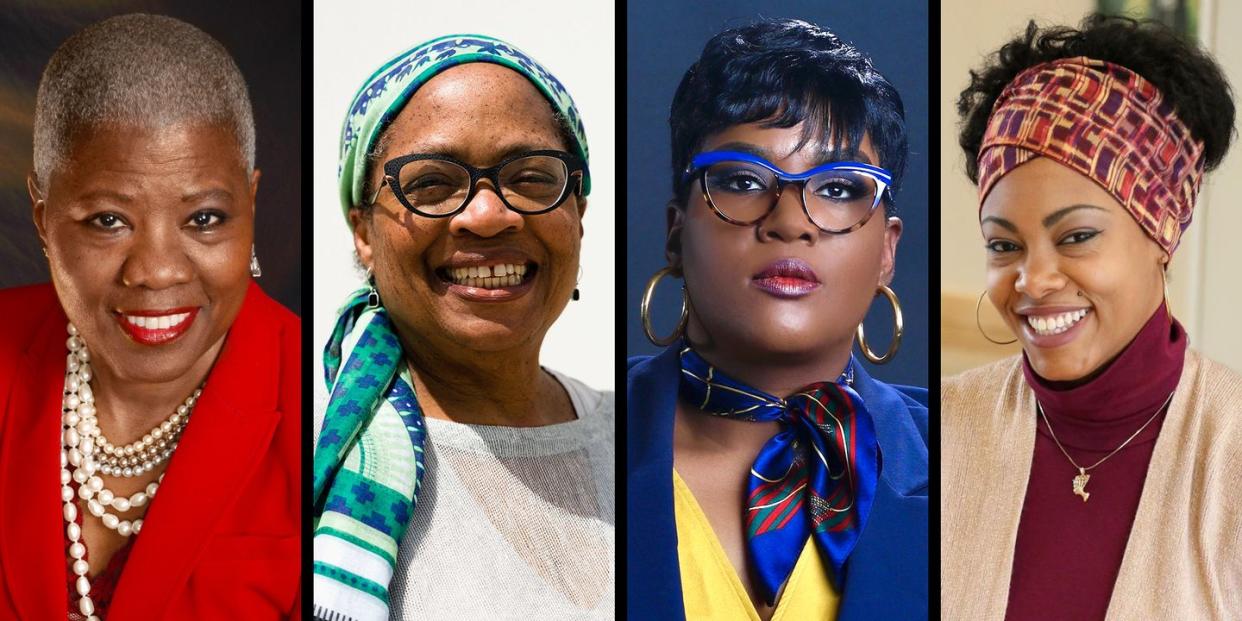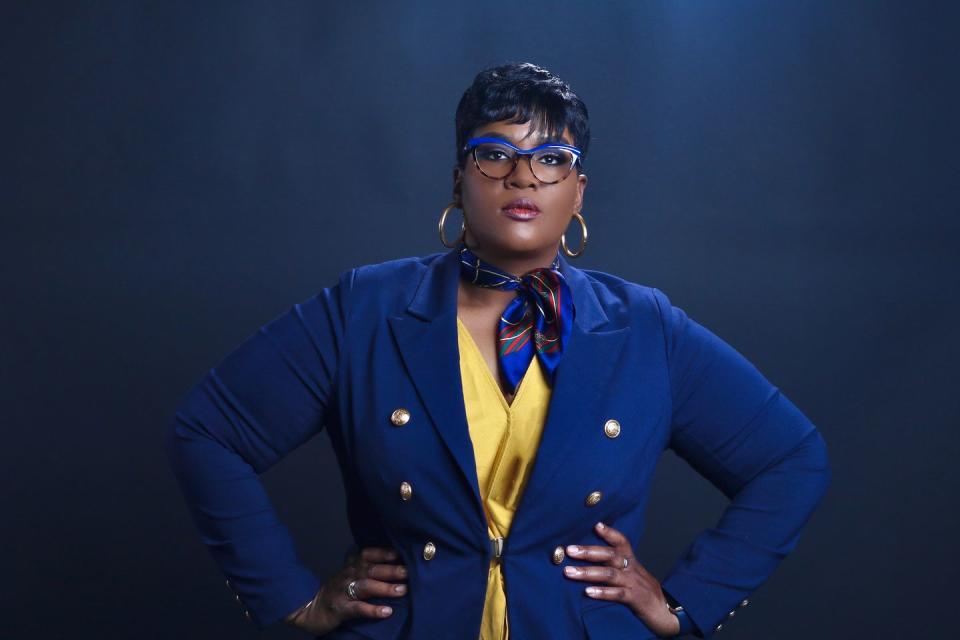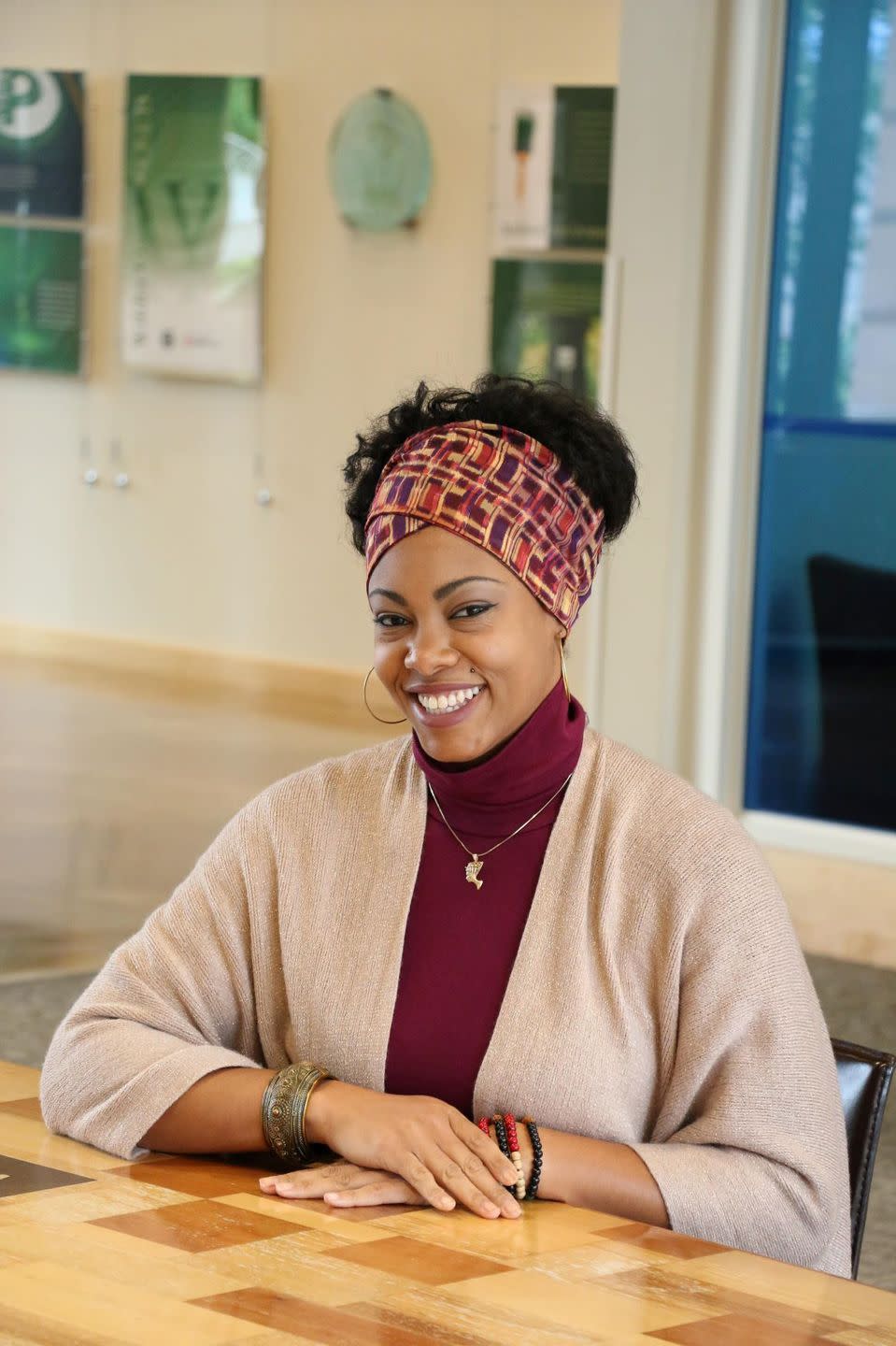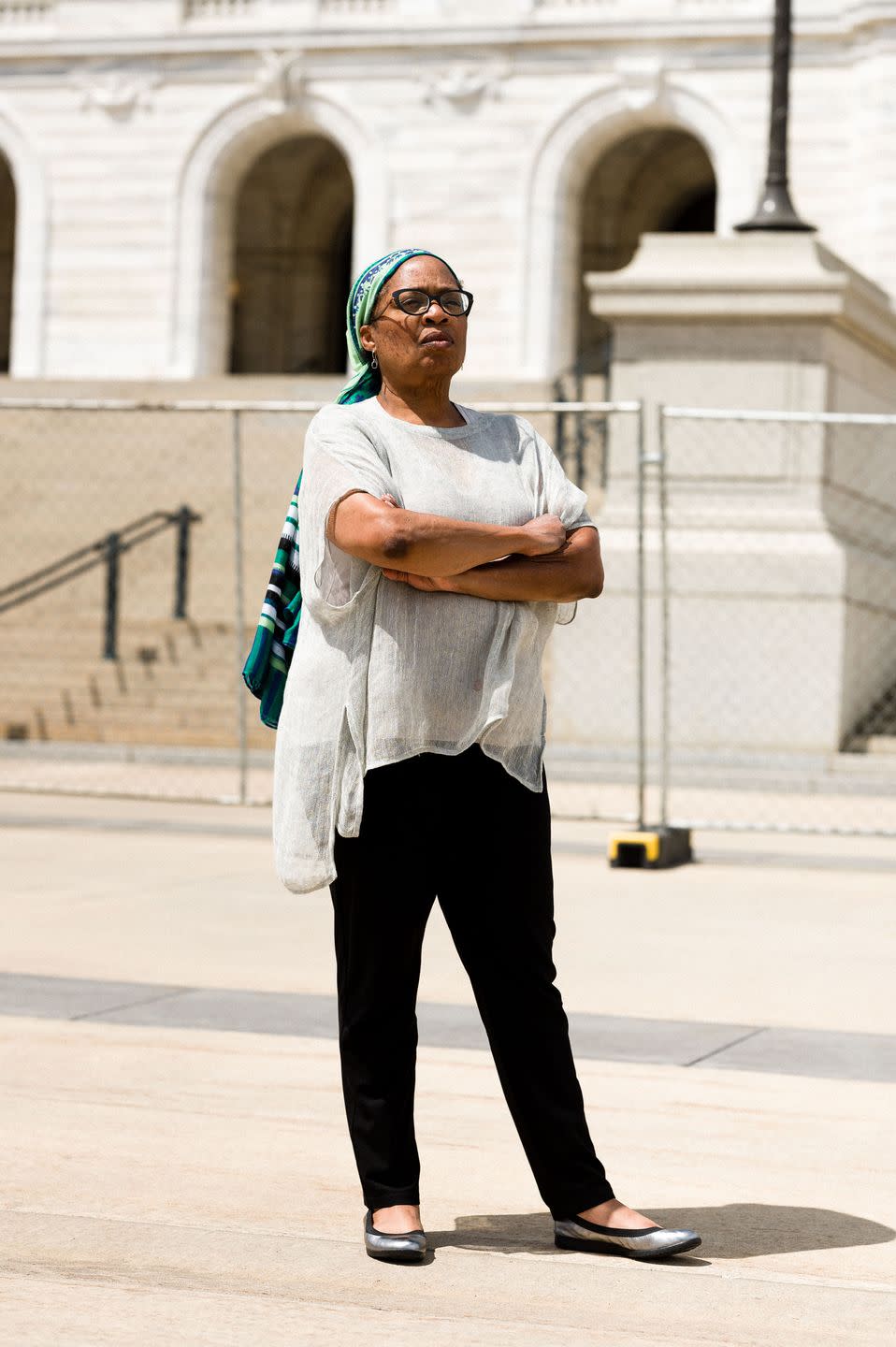There Has Never Been a Black Woman Elected to Minnesota's State Senate, These Women Aim to Change That

On May 26, Zina Alston Fizer opened her email to find that someone had sent her a video.
“I looked, and I said, “What is this?” Alston Fizer recalled nearly two months later. “I saw a Black man on the ground, being restrained, and the nonchalant and cavalier attitude of this white cop with his knee in this man's neck...I watched all the way up until this man said, ‘mama.’”
The man in the video was 46-year-old George Floyd, a Black man who was killed by Minneapolis Police officer Derek Chauvin on May 25 after being restrained on the ground for at least eight minutes and 15 seconds. In the final moments of his life, he called out for his mother.
“When he said, “Mama,” I was just fit to be tied,” Alston Fizer said. “At that point, I said, ‘OK, Zina, what are you going to do?’
A self-described “political nerd” who served in student government during her undergraduate years and has always loved Robert’s Rules of Order, Alston Fizer got her master's degree in advocacy and political leadership three years ago and set her eyes on the state Senate. While Floyd’s death was certainly the impetus for Alston Fizer officially launching her senatorial campaign earlier this summer, legislative office is something she’s long considered.

On the June 2 filing deadline, Alston Fizer received a call from Alberder Gillespie, the founder of Black Women Rising, a non-profit organization that seeks to positively impact Minnesota by leveraging Black women’s political potential and power.
“She knew my intent, she knew what my degree was in,” Alston Fizer said. “[Gillespie] said, ‘Zina, enough is enough. We have to wield our collective power. We need to do this as a group. We need to do this now. Today is the last day to file. Will you say yes?’
“I sat there, and I said ‘Yeah,’ and I started the whirlwind of this crazy campaign.”
Alston Fizer officially declared her candidacy for the Minnesota State Senate, a legislative body to which there has never been a Black woman elected in the state’s entire 162-year history.
Gillespie is one of four Black women running in the state’s Democratic–Farmer–Labor (DFL) primary for Minnesota State Senate on August 11. Like Alston Fizer (who is running in Minnesota’s 44th District), all of these women have long been civically engaged and connected to the communities they now seek to serve in an official elected capacity.
But Aarica Coleman, who is running in District 34, didn’t think she’d run until 2022.
"When George Floyd was murdered, it just hit me differently,” Coleman said. “I was tired—I am tired—of working behind the scenes, moving policy, and hoping, because that's what it comes down to—hoping—that it gets implemented, and that the people that are implementing it really care about it and understand it and will move it forward.”

“I said, ‘You know what, I have a policy expertise. I don't have to be behind the scenes anymore. I can actually be one of the people that is bringing everyone with me and fully representing not only my district, but Minnesotans in the large.' When George Floyd was murdered...I hate to say this because I believe words have power, but I saw my own son, I saw my own brothers and my father...I couldn't not see that.”
If Coleman wins her primary this August, she’ll face off against Republican incumbent Sen. Warren Limmer this November. In her policy work, Coleman has interacted with the current senator before.
“There are issues directly that I have championed that the current senator of this district has stopped at the state level,” she said.

In addition to criminal justice reform bills, including increased accountability for law enforcement, one of the issues Coleman has championed is the African American Families Preservation Act, which addresses the disproportionate rates at which Black and Indigenous children are removed from their homes and thrust into the state’s child protection system. The bill, which was passed by the Minnesota House of Representatives, still sits in the Senate’s public safety committee, which Limmer chairs.
Coleman’s platform prioritizes a multi-layered approach to public safety, one that includes not just law enforcement, but also affordable, equitable healthcare and access to education, stable housing, and job opportunities.
“I think we have to really look at the whole person, the whole resident, in order to really achieve public safety,” she said. “I feel like my senator at this time has fallen short in truly addressing all of those issues."
Public safety has been a hotly debated topic across the country following Floyd’s death. In Minnesota’s 53rd district, Marquita Stephens is running to help redefine the role of policing as soon as she takes office should she be successful in her August primary and subsequent November general election.

“My approach is to pass a constitutional amendment that redefines policing and that takes into account the historic origins of policing as it is currently practiced, understanding that we live in a different society now,” Stephens said. “There are different relationships amongst people now, and we have to create a different role for policing. That can only be done through a constitutional amendment. Coming from that will then be changes in police jurisdiction, in addition to legislative change about methods, but [Congress] needs to address the role of policing at the constitutional level.”
The fourth Black woman running for a state senate seat in Minnesota, Laverne McCartney Knighton, is no stranger to being “the first.” Growing up during the 1960s in a small, segregated town in rural Texas, she was one of the first Black kids to be bussed in from an all-Black school to an all-white school to test integration in the mid-1960s. She subsequently became the first Black valedictorian to graduate from the officially integrated high school in 1973.

“That was quite the controversial moment for that small town,” she recalls. “But it was something that I had strived for, I had never thought I wasn't going to be valedictorian, so it didn't change as a result of me going into an integrated situation. It seemed natural for me to be able to excel in that arena, but I think it shocked a lot of white people who weren't quite expecting that the valedictorian was going to be African American, but I earned it, and I stood proudly in it."
Her entire career has made her further accustomed to being the first, or the only, Black woman in the room.
“I think moving into a state Senate position would not be intimidating,” she said. “To be able to stand in that place, and take my rightful place, if that should happen, would not be something new or frightening to me at this point.”
Early on in Alston Fizer’s campaign, she connected with a small group of high school and college-aged women, mostly Black, who had organized demonstrations in the suburbs to support the larger actions taking place downtown in Minneapolis in solidarity with George Floyd.
The younger women were just as inspired by the freshly declared candidate as she was by their engagement and passion for social change. After their initial meeting, they officially dubbed themselves Youth 4 Zina, and they now help her with her social media messaging while pursuing their own endeavors at school, in the suburbs, and beyond.
“You list off what is wrong, what we need to change, and then the next step is making those policy changes so we can actually see things written into law, written into our daily lives, that will make the quality of life better for Black people," said Izzy Mayaka, an incoming high school senior in Alston Fizer’s district and a Youth 4 Zina organizer. “I think that the opportunity to work with Zina is really special...for those of us who want to be politicians, or who do want to dive into that field, to get that experience really early on.”
You Might Also Like


